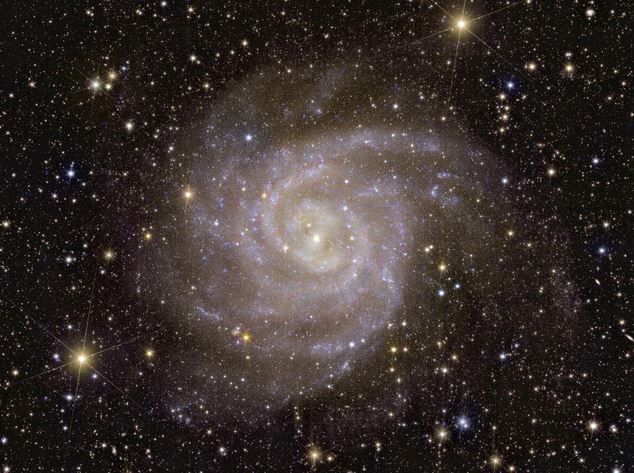Euclid Space Telescope Reveals Stunning Galaxies in Distant Universe

The European Space Agency has revealed a remarkable collection of galaxies captured by the Euclid space telescope, providing a clear and stunning glimpse into the history of this vast collection of galaxies, including a cluster of 1,000 located 240 million light-years away. (Photo: seattletimes)
Euclid Space Telescope Unveils Razor-Sharp Images of Distant Galaxies
According to source, the European Space Agency has unveiled an astounding collection of galaxies captured by the Euclid space telescope, offering a breathtaking glimpse into the distant universe. While these cosmic landscapes have been observed previously, Euclid’s snapshots are distinguished by their “razor-sharp” quality, covering vast areas of the sky and delving deep into the distant cosmos.
One image reveals a vast collection of galaxies, a cluster of 1,000 located 240 million light-years away, set against a backdrop of more than 100,000 galaxies billions of light-years distant, providing a clear and stunning glimpse into the history of this vast collection of galaxies.
Euclid’s instruments are so exquisitely sensitive that they can discern the faintest galaxies, previously imperceptible to astronomers. The telescope’s findings are described as “crystal-clear and stunning images” that offer a window into the history of this incredible collection of galaxies.
Euclid’s Stargazing: Exploring Spiral Galaxies, Nebulas, and Dark Matter
Euclid has also captured images of a spiral galaxy that bears a resemblance to our Milky Way, showcasing extensive star formation throughout the region within this collection of galaxies. Additionally, the telescope photographed the Horsehead Nebula in the Orion constellation, a renowned area of star formation, in just an hour of observation time.
Scientists plan to harness Euclid’s capacity to measure the shapes and movements of galaxies up to 10 billion light-years away to gain deeper insights into dark energy and dark matter, both integral components of the majority of the universe within this vast collection of galaxies.
Over the next six years, the observatory will scrutinize billions of galaxies, fashioning a comprehensive 3D map of the cosmos, all within this remarkable collection of galaxies. NASA is a collaborator in this $1.5 billion mission, equipping Euclid with its infrared detectors. Launched in July, Euclid orbits the sun at a distance of approximately 1 million miles from Earth, bearing the name of the ancient Greek mathematician, Euclid.
READ ALSO: Portland Police Bureau: Standoff and Gun Threats Lead to Charges Against Local Resident
























